Following a (very public) recent spat between WordPress founder and Automattic CEO Matt Mullenweg, and WP Engine, we look at what’s happened and why, and what the effects have been WordPress users.
WordPress and WP Engine
To better understand the story, it may be a good idea to first look at the two sides in the dispute – who (and what) they are, and why they’re different.
WordPress
Most people are likely to be familiar with WordPress, the open-source content management system (CMS) that now powers over 40 per cent of websites globally. It was founded in 2003 by Matt Mullenweg and Mike Little as a fork of another blogging tool called b2/cafelog. Since its blogging platform beginnings, it has evolved into a versatile CMS and is used for everything from personal blogs to large corporate websites. WordPress.org is the official website where the open-source version of WordPress can be downloaded and is maintained by the broader WordPress community. WordPress’s co-founder Matt Mullenweg is also now the CEO of Automattic, the company behind WordPress.com, a commercial arm that provides hosting services for WordPress users. Mullenweg also founded (in 2010) the WordPress Foundation, which is a non-profit organisation to promote and protect the WordPress brand and support the open-source project’s development.
WP Engine
WP Engine, on the other hand, is a managed hosting service specifically designed for WordPress websites. Founded in 2010 by Jason Cohen, and currently led by Heather Brunner (the company’s CEO and chairperson), WP Engine offers specialised hosting services, focusing on performance, security, and support for WordPress-based websites.
The key distinction between the two is that WordPress is an open-source software project managed by a community, while WP Engine is a commercial entity offering specialised hosting for WordPress sites, i.e. it is distinct from (and not officially associated with) WordPress – the brand is not part of WordPress. Automattic, led by Mullenweg, is closely tied to the development of WordPress, whereas WP Engine builds its business upon optimising the WordPress experience for its customers without contributing significantly to its core development.
Other Players
One other player mentioned in the recent dispute is Silver Lake, a global private equity firm that specialises in technology investments. Silver Lake invested $250 million in WP Engine back in 2018, significantly boosting WP Engine’s financial capacity to grow its hosting business within the WordPress ecosystem. However, Silverlake doesn’t have a direct relationship with WordPress, but has been criticised (as detailed below) by WordPress’s Matt Mullenweg.
The Recent Conflict – A Quick Blow-By-Blow Breakdown
The current, ongoing feud between Matt Mullenweg, CEO of Automattic, and WP Engine has taken the WordPress community by storm. The dispute began on September 20 when Mullenweg publicly lambasted WP Engine, accusing the company of profiteering from WordPress while contributing little to its open-source ecosystem. What followed has been a series of escalating accusations, legal actions, and heated exchanges, leaving WordPress users and businesses concerned about the impact on their websites and the future of the platform.
September 2024 – Mullenweg Calls Out WP Engine
The feud came to light when Mullenweg, during his keynote address at the WordCamp US event in September 2024, sharply criticised WP Engine. He labelled the company a “cancer” within the WordPress ecosystem, accusing them of using the open-source platform for commercial gain without giving back in a meaningful way. Specifically, Mullenweg pointed out that WP Engine only contributes around 40 hours per week towards WordPress development, compared to Automattic’s substantial 4,000 hours. His most significant grievance was that WP Engine had allegedly disabled core WordPress features, such as post revisions, to reduce their hosting costs, thus compromising user experience for profit.
WP Engine’s Response
In response, WP Engine released a blog post defending its track record, highlighting over a decade of contributions to the WordPress community. They pointed to innovations such as their headless WordPress solution and their support for modern web frameworks like Faust.js and WPGraphQL, emphasising their role in expanding the platform’s capabilities.
Cease-and-Desist Letters
The situation worsened when WP Engine sent a cease-and-desist letter to Automattic, accusing Mullenweg of making false claims and threatening the company with legal action. WP Engine argued that Mullenweg’s statements were defamatory and could damage their business. They also stated that Mullenweg’s criticism was rooted in their refusal to pay Automattic a significant sum of money, which Mullenweg had allegedly demanded for the use of WordPress trademarks. According to WP Engine, they were operating within the guidelines of the WordPress Foundation’s trademark policy and did not require such a licence.
Automattic responded by issuing its own cease-and-desist letter, accusing WP Engine of trademark misuse and unfair competition. Automattic claimed that WP Engine had been benefiting from the WordPress brand without proper authorisation and that their use of terms like “WordPress” and “WooCommerce” in their marketing was misleading to customers.
Statements
Throughout the conflict, both Mullenweg and WP Engine have been vocal in defending their positions. Mullenweg, in a blog post titled “WP Engine is Not WordPress,” accused the company of butchering the platform for profit. “What WP Engine gives you is not WordPress,” Mullenweg wrote, emphasising that WP Engine’s practices were misrepresenting the platform and harming users by removing essential features like post revisions. He reiterated this during his WordCamp US speech, where he criticised private equity involvement in the WordPress ecosystem (referring to Silverlake – the company that invested in WP Engine in 2018), stating, “Silver Lake doesn’t care about your open-source ideals, it just wants a return on capital.” In short, Mullenweg’s criticism of WP Engine, particularly about its focus on profits over open-source contributions, also targets Silver Lake, implying that their primary interest is financial returns, rather than supporting the open-source community.
In contrast, WP Engine pushed back against these claims, arguing that their investments in the WordPress ecosystem go beyond contributing to the core software. WP Engine has highlighted its efforts to support the wider WordPress developer community and create innovative tools for businesses, noting that their business model is entirely compatible with the platform’s open-source ethos.
The Impact on WordPress Users
For businesses that rely on WP Engine for hosting, the dispute has raised several concerns. One immediate consequence was WP Engine’s temporary ban (September 25) from accessing WordPress.org resources, including essential software updates. This move (by Automattic) led to some operational challenges for users, who were unable to receive timely updates for their websites – sites using WP Engine’s solutions couldn’t install plug-ins or update their themes. Also, WP Engine customers couldn’t access security updates, thereby potentially leaving them vulnerable. WP Engine has reassured customers that they are working to resolve the issue and continue providing a stable service. WordPress.org has since lifted the ban on hosting provider WP Engine (until October 1).
Trademark A Key Issue
Shortly after banning WP Engine from WordPress.org, Mullenweg stated (in a blog post) that trademarks are the main issue. Automattic alleged that WP Engine has built its $400 million+ revenue business upon unauthorised use of its WordPress trademark (Automattic says it has the exclusive commercial rights for from the WordPress Foundation for this trademark). Automattic says, for example, it has been trying to sign a licensing deal with WP Engine and has offered WP Engine the option to pay a direct licensing fee or make in-kind contributions to the open-source project.
Divided Opinion
Meanwhile, the broader WordPress community has been left divided. Some developers and users have voiced support for Mullenweg’s stance, arguing that WP Engine’s commercial approach undermines the open-source principles on which WordPress was founded. Others, however, believe that Mullenweg’s comments were unnecessarily inflammatory and that WP Engine’s contributions to the platform, particularly in the area of headless WordPress solutions, have been valuable for the community.
So, Where Are We Now?
As of late September 2024, the situation remains unresolved, with both parties engaging in a public and legal back-and-forth. While no lawsuits have yet been filed, WP Engine’s legal team has hinted at potential claims of tortious interference and unfair business practices. The WordPress Foundation, which manages the platform’s trademarks, has also updated its policies, seemingly targeting WP Engine’s business practices. Mullenweg, for his part, continues to stand by his comments, reinforcing his belief that WP Engine is not operating in the best interests of the WordPress community.
What Does This Mean For Your Business?
For UK businesses that rely on WordPress, this conflict brings several important considerations. Firstly, if you are using WP Engine as your hosting provider, it’s essential to stay updated on the potential legal outcomes and any changes to the service that may result from this dispute. The ban from WordPress.org resources, even though temporary, affected site performance and security for some users, so keeping an eye on WP Engine’s communication with customers going forward may be critical.
From a broader perspective, this feud highlights the tension between open-source ideals and commercialisation. While WordPress remains free and open-source, hosting providers like WP Engine have built profitable businesses on top of it. Mullenweg’s criticism raises questions about how much companies should contribute back to the ecosystem from which they benefit.
For competitors, this may create an opportunity. Hosting providers who are more aligned with WordPress’s open-source principles could attract users disillusioned with WP Engine’s business practices. For businesses looking to build or maintain WordPress sites, it may be worth exploring alternatives that contribute more significantly to the platform’s long-term sustainability.
This dispute, therefore, serves as a reminder that even in the open-source world, commercial interests can sometimes lead to conflict. Whether you are a developer, a business owner, or simply a WordPress user, keeping an eye on these developments is crucial for making informed decisions about your website’s future.


